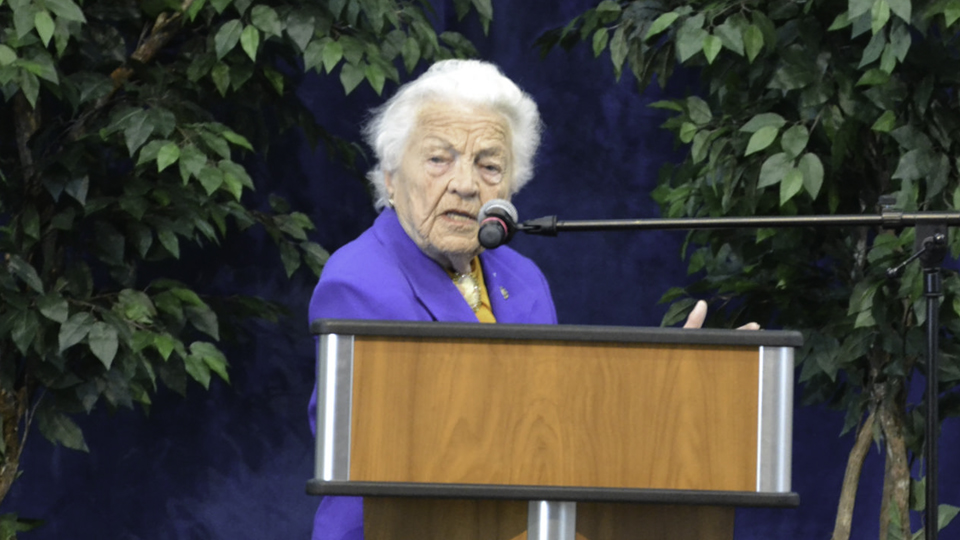The seminar, titled “Health: Not Sure Where to Start?”, was held last Saturday in the main RAWC gym.
The guest speakers included Mayor Hazel McCallion, Gayle Bursey of Peel Healthcare, and Michelle DiEmanuele, the CEO of Trillium Health Partners.
McCallion opened the seminar by highlighting the global importance of healthcare.
“I believe strongly that if we want peace in the world, we are going to have to do an awful lot to upgrade the health conditions and poverty in the developing world,” said McCallion. “That’s the answer, in my opinion. It’s not sending an army, not sending supplies, but sending and giving them the knowledge of the programs that we have developed in the western world and sharing them with other parts of the world.”
The mayor closed her speech by emphasizing the need to establish a team-based approach through the Healthy City Stewardship Centre, chaired by Ulrich Krull, a professor of analytical chemistry at UTM.
Krull elaborated on the development of the HCSC program as a collection of public agencies, police, school boards, the university, and Sheridan College, all of which have the largest social footprints in the community.
At one part of his speech, Krull introduced an assortment of food prepared for the attendees based on a menu he said was designed to balance nutrition, low cost, and taste to create food suitable for cafeterias.
Bursey stressed the public’s reliance on technology and the conveniences it provided. He said that the province of New Brunswick spends half of its budget for healthcare; Ontario uses 47%, he said, and the percentage is likely to increase in the future. One of his concerns is the growing frequency of health problems, such as diabetes, related to the general population’s lack of physical activity.
DiEmanuele explained the continued growth of Mississauga will pose many challenges ahead for the healthcare system.
The merging of Trillium Health Centre with Credit Valley Hospital just over a year ago led to the creation of the Trillium Health Partners Strategic Plan 2013–2018. This plan aims to aid the public by reducing costs and avoiding duplicate services—common problems when navigating the transfer of patient treatment—and to coordinate the teamwork of the healthcare providers.
The plan is also designed to address how the organization will deal with the growing population, hoping to maintain the quality, access, and sustainability of its healthcare.
DiEmanuele emphasized the importance of patients and families actively participating in their healthcare. “Pay attention to your own health—it matters,” she said.

